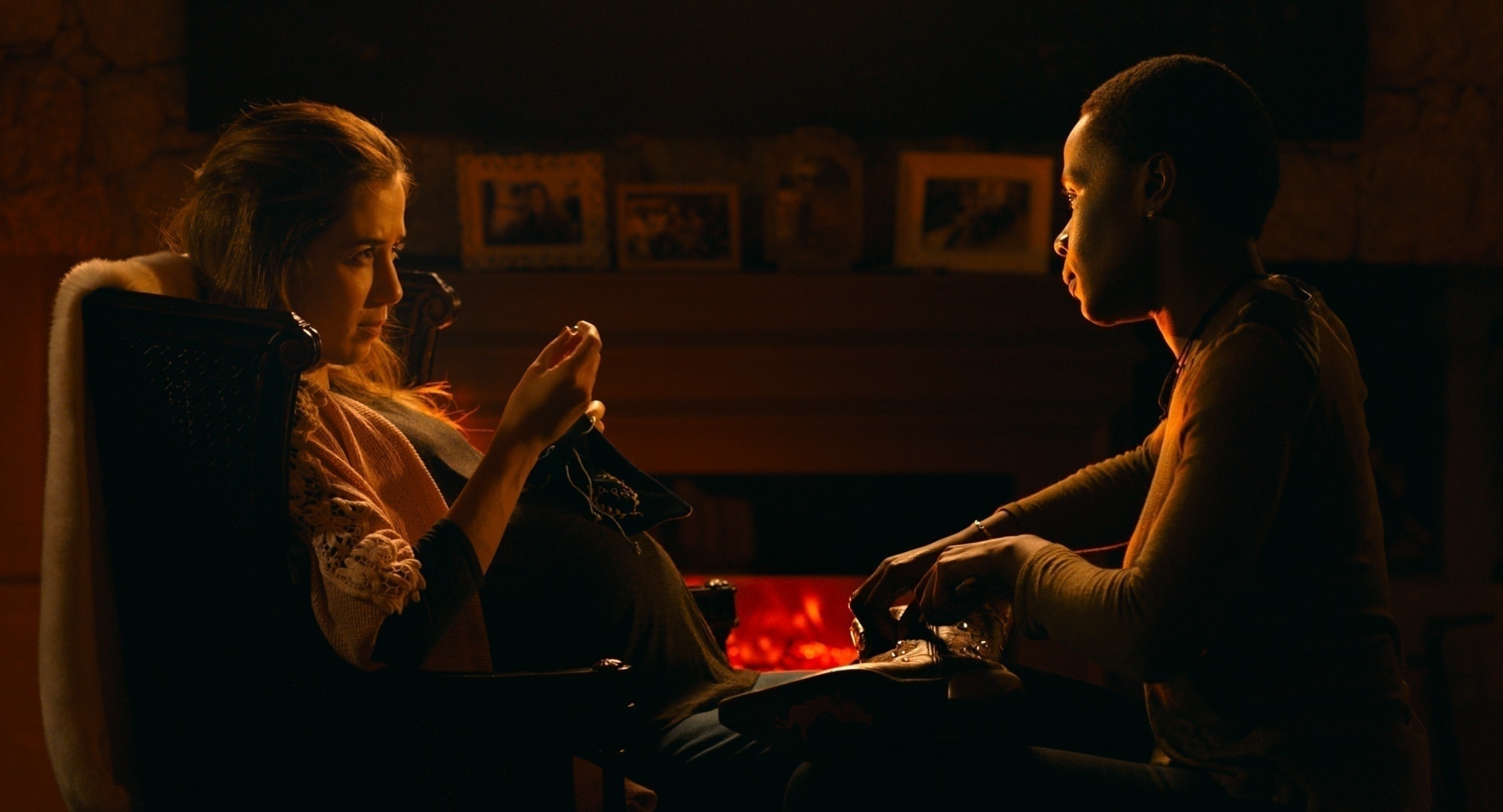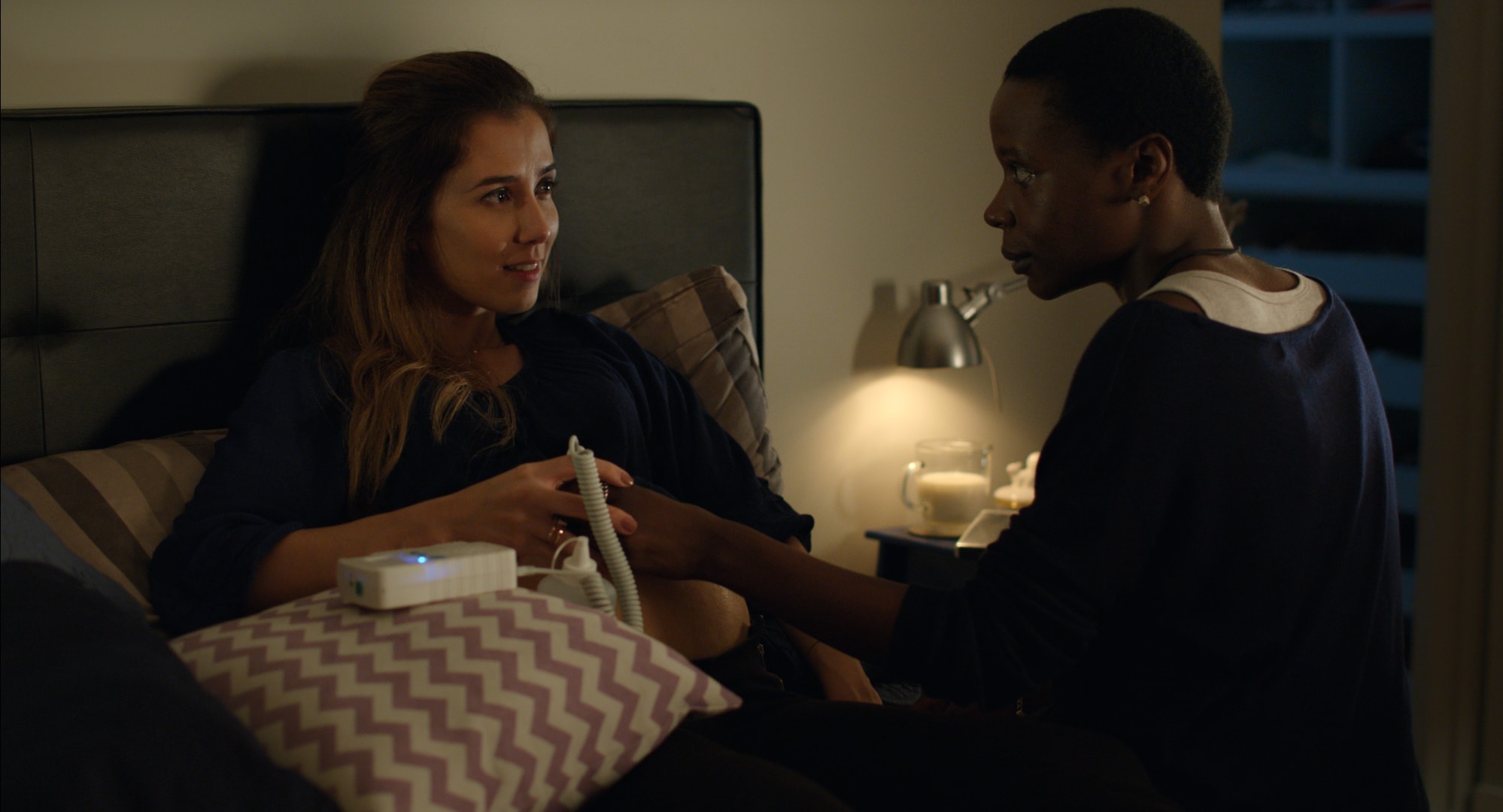
‘Fixed on turning the screw’ – review of Good Manners

Good Manners is a 2017 Brazilian film written and directed by Marco Dutra and Juliana Rojas (now showing on Mubi). Taking off from the directors’ previous film, 2015’s Hard Labor, supernatural disturbances are used to examine economic disparity, in this tale of a lonely nurse who is hired by a wealthy mother-to-be…
Like Bong Joon-Ho’s Parasite, and Alfred Hitchcock’s Psycho before it, Marco Dutra and Juliana Rojas’ Good Manners is really two films yoked together by a gut-wrenching eruption of violence at the midpoint – one that announces the ‘real film’ is about to begin. The less said about that the better.
When you have a screenplay fixed on turning the screw, the distinction between fantasy and realism can seem somewhat irrelevant
Good Manners could be billed as horror, musical, or fable – but when you have a screenplay fixed on turning the screw, the distinction between fantasy and realism can seem somewhat irrelevant. As in fiction, so in life: I’m watching the film on a train, slipping crisps underneath my face mask and wondering if licking the salt off my fingertips is disgusting the suited man across the aisle from me; I must be living in make-believe. No, this is real life.
As it turns out, hunger (for which you can also read desire); eating and disgust; class, and social responsibility are among the film’s primary themes – as well as motherhood (perhaps not so applicable to my snack on the train.)
Ana (Marjorie Estiano) is conducting interviews for a live-in nanny. Clara (Isabél Zuaa) is by no means the most qualified, but when Ana experiences sudden pain during the interview, Clara soothes her, rubbing her shoulders, and it’s Clara’s calming presence that wins her the job. Or is it?
The pair are from different worlds: Clara is an African-Brazilian nurse and straight-faced loner behind on her rent; Ana, spoiled, flighty, and estranged from her friends and plantation-owning family.
…it’s Clara’s calming presence that wins her the job. Or is it?
Ana soon has Clara cooking, cleaning, and painting the baby’s room – perhaps presuming she’ll submit to the housemaid role, based on her class and the colour of her skin. Thus, the film’s opening is a nuanced dance of power, turning as delicately as the horse figurine on Ana’s music box, which is used as a motif throughout the film.
Right off the bat, with the ostentatious choral music that soars during the opening credits, cut off abruptly by the ring of a door buzzer, sound is your first clue that Good Manners could go in any direction. Ana swishes her ponytail around in kitschy country music workouts.
Clara’s landlady plonks around on her piano. The soundtrack shifts dexterously from sensitivity to the out-of-place, such that later when the film gives way to stiff operatic musical numbers, these feel perfectly justified on the film’s own terms.
All this might sound outlandish, but it’s hard to overstate how subtle are this film’s arthouse beginnings. Despite their differences, Ana and Clara develop a mutual reliance. Chemistry. There are shades of something not quite right: the baby kicks; Clara wipes raw meat juices off the shelf in the fridge with a white towel; São Paulo’s high-rises are a little too painterly, the moon against the inky sky a little too bright.
Despite their differences, Ana and Clara develop a mutual reliance. Chemistry
This subtlety doesn’t carry over to the film’s second half – but nor would you say it lacked it. Rather, the poetics of social drama are traded for a blunter instrument. Ultimately, horror tropes are wielded (in a Guillermo-del-Toro-ish way) to tell a love story. Why would you use monsters to tell a love story? Perhaps because loving someone requires you to concede that you can never fully understand him, her. Or it.
Good Manners is currently streaming on Mubi




